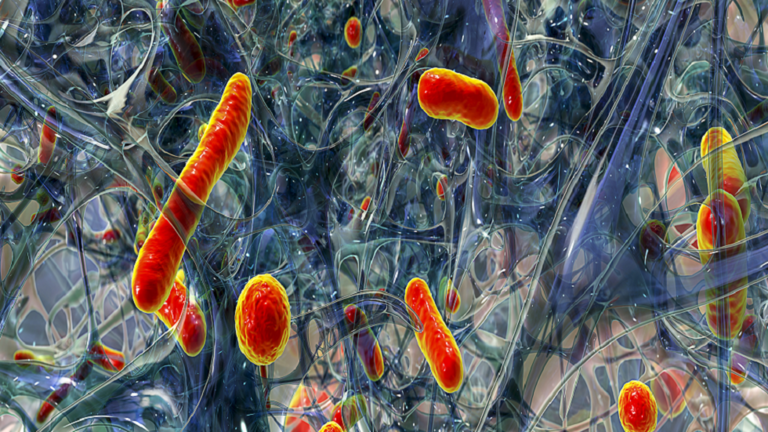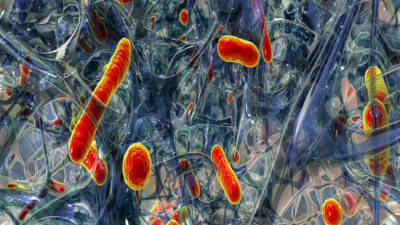Injecting patients with "friendly" viruses could kill antibiotic-resistant killer bacteria. The microscopic viruses, called bacteriophages, target and destroy bacteria. Experts believe they could help combat the growing global crisis of antibiotic resistance, as common treatments fail, potentially making routine procedures like hip replacements life-threatening. The issue is expected to cause ten million deaths annually by 2050. However, researchers have struggled to prove the effectiveness of bacteriophages as a medical treatment because they are difficult to obtain. The viruses, which are 40 times smaller than red blood cells, exist both in the human body and in the natural world. But only specific types that have evolved to target bacteria can be used in studies.
Now, a study has found that a strain of bacteriophage is 85% effective against a drug-resistant strain of bacterial pneumonia that kills hundreds of thousands of people every year. Researchers administered this bacteriophage to 16 pneumonia patients who did not respond to antibiotics. All patients were infected with a bacteria called pseudomonas aeruginosa, which is commonly present in British NHS hospitals. It is a common killer of cystic fibrosis patients, a chronic condition that causes the lungs to fill with thick mucus, making them susceptible to lung infections.
Researchers treated non-cystic fibrosis patients suffering from the infection with bacteriophages for nearly two weeks. They found that 13 patients responded to the treatment and were successfully cured. Professor Ran Nir-Paz, a microbiologist, stated, "This provides hope for patients suffering from chronic infections and highlights the potential of bacteriophage therapy as a valuable alternative to traditional antibiotics."




